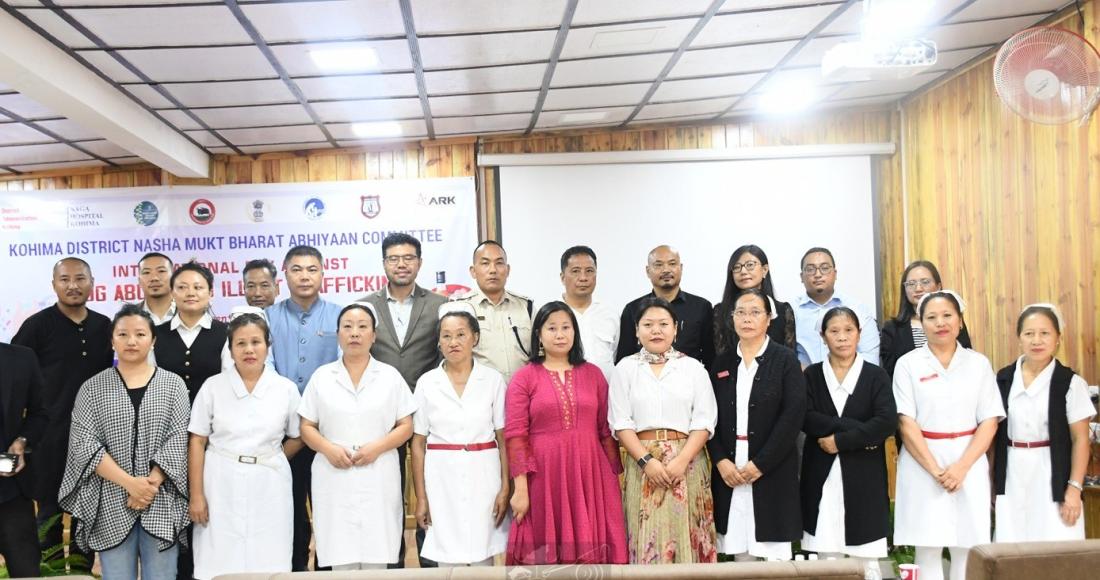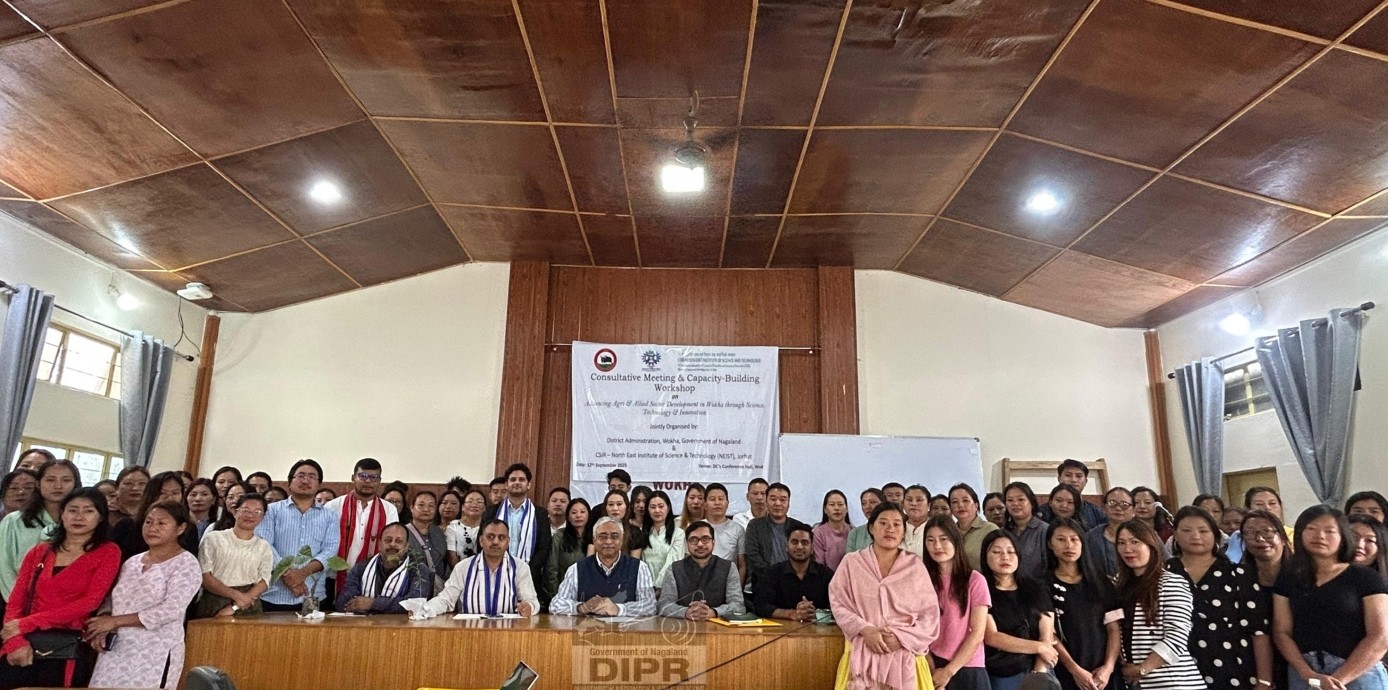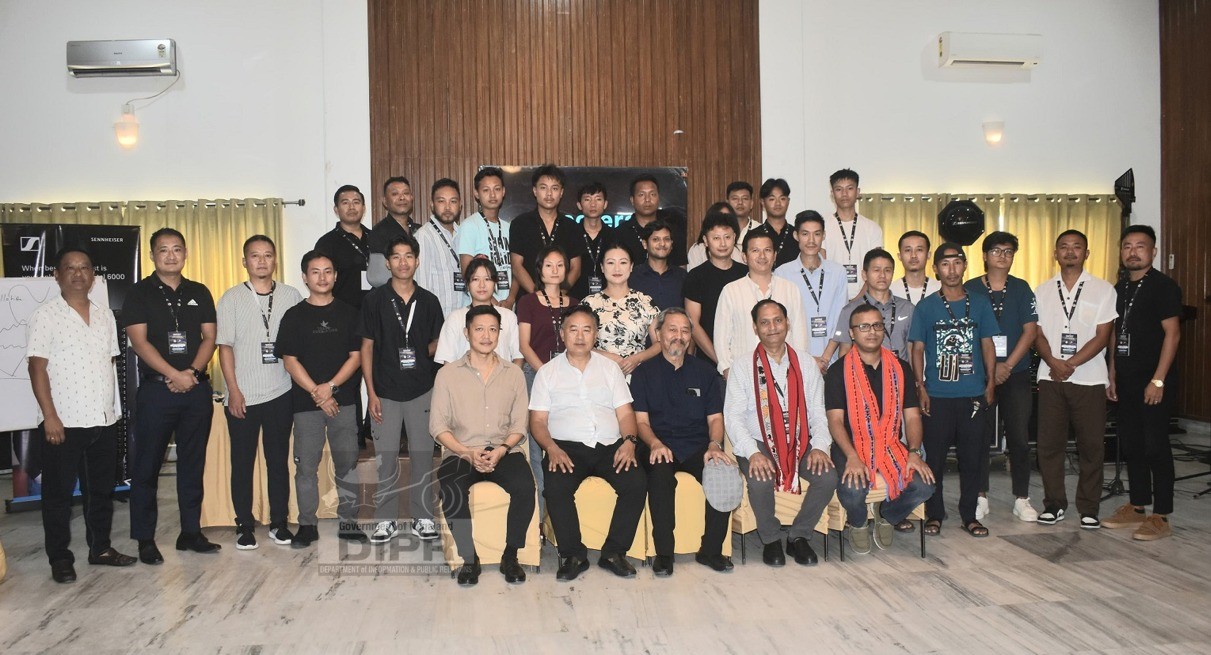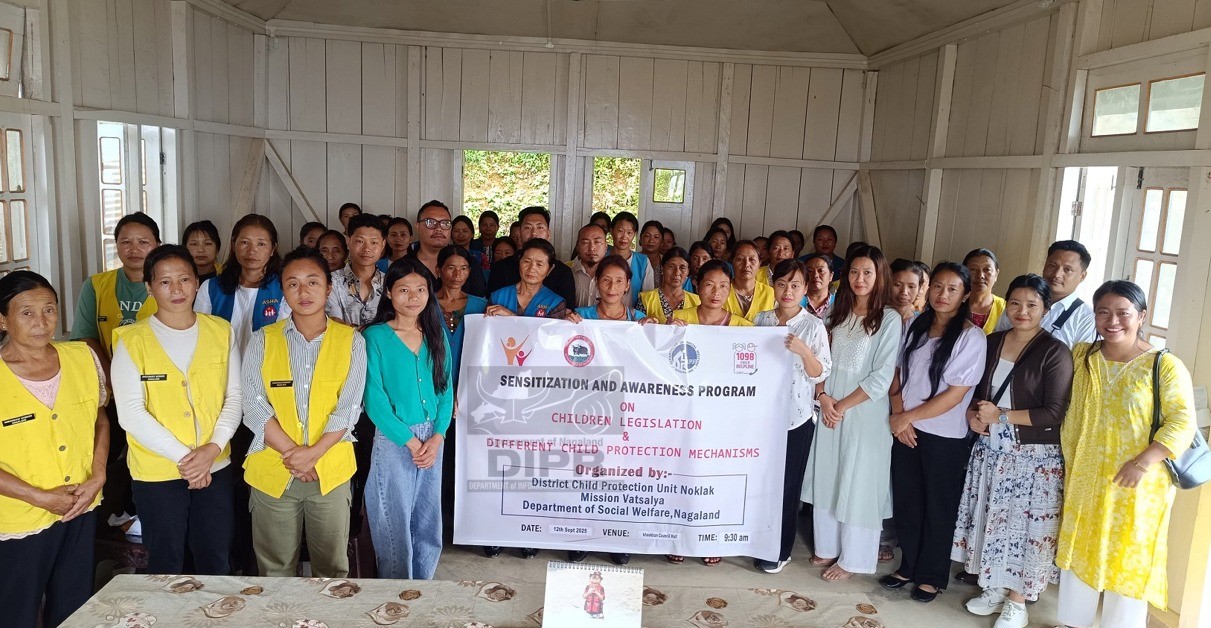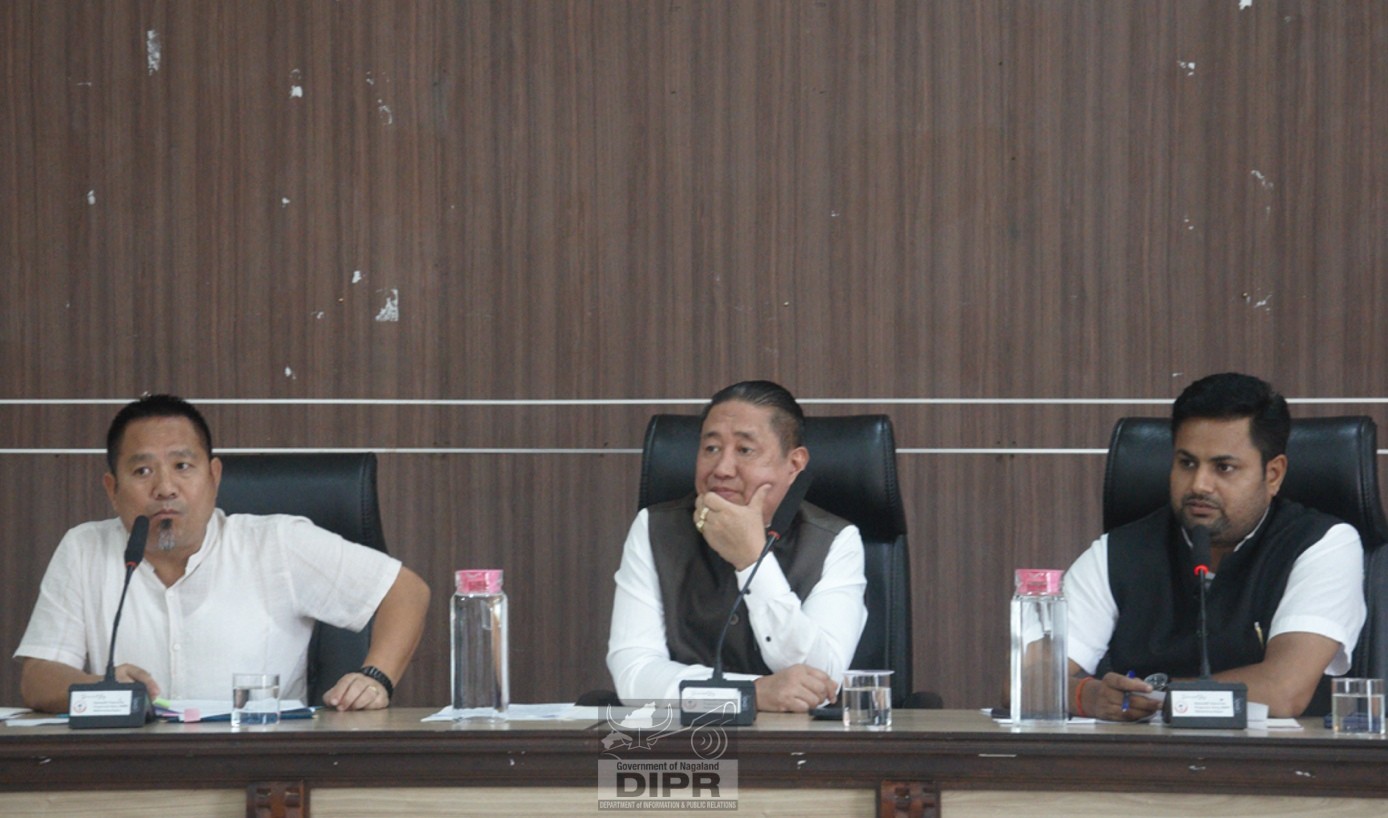The Kohima District Nasha Mukt Bharat Abhiyaan Committee observed the International Day Against Drug Abuse and Illicit Trafficking with the theme “Breaking the Chain: Prevention, Treatment, Recovery for All” on June 26, 2025 at the NHAK Auditorium, Kohima organized by the District Administration Kohima in collaboration with Project REST, NHAK Kohima.
Speaking at the event, Deputy Commissioner of Kohima, NCS, B. Henok Buchem, emphasized the urgent need to strike a balance between rehabilitative and punitive approaches in tackling substance abuse. “While we must empower medical professionals and organizations to continue healing and reintegration efforts, law enforcement must simultaneously strengthen its crackdown on drug trafficking. Both are necessary, the carrot and the stick,” he said.
He acknowledged the growing concern that over 90% of drug users are young people. Referring to successful models across the globe, he cited Portugal and Norway for their rehabilitative strategies, and countries like Saudi Arabia and Singapore for their strict punitive measures. He emphasized the importance of a balanced approach in Nagaland—combining strong law enforcement to curb supply with robust rehabilitation and reintegration support for those affected.
The DC called on all stakeholders, medical professionals, law enforcement, NGOs, educators, and families, to work together in strengthening both the “carrot” and the “stick” aspects of the response. “Our response must be tailored to our unique social and cultural context. Healing cannot happen without enforcement, and enforcement without support leads nowhere,” he asserted.
He further urged young people not to give up on themselves, and assured those recovering from addiction that they are not alone, that it is never too late to rebuild their lives.
Chairing the event was Suyimtenla Jamir, Psychologist, Tele-MANAS, State Mental Health Institute, Kohima. Dr. Imotemsu, Managing Director of NHAK, delivered the welcome address.
Additional SP (Protocol & Traffic) Z. Tshurhosie Kajiri, delivering a talk on “Police and Community Partnership in Drug Prevention and Harm Reduction Services,” underscored that the primary role of law enforcement is not just to arrest but to protect lives. Highlighting the drug-related arrests in Kohima, he said from 2022 to June 2025, a total of 81 drug-related cases were registered in Kohima district, resulting in the arrest of 116 individuals—98 males and 18 females. While most of these cases were booked under Sections 21(c) and 22(c) of the NDPS Act, officials cautioned that these figures represent only reported incidents, and the true scale of substance abuse in the district is likely much higher.
He emphasized that collaboration between the police and community is essential in tackling the crisis. “Law enforcement alone cannot solve this problem. We must build trust with the community, promote treatment access, reduce stigma, and recognize addiction as a disease—not a crime. Only then can we break the cycle of substance abuse,” he said.
Delivering the legal awareness session, Kezhosano Kikhi, Deputy Legal Aid Defence Counsel, DLSA Kohima, gave an overview of the NDPS Act and the NLTP Act. She emphasized the legal distinction between users and suppliers, highlighting that while the law is strict with traffickers, it also has provisions for users who voluntarily seek treatment. “Section 64A of the NDPS Act offers immunity to those who choose rehabilitation over punishment,” she explained. She also called for more structured and consistent implementation of the NLTP Act, particularly pointing out the lack of clear guidelines regarding local brews and inconsistent enforcement across districts. “We need a science-backed policy framework and uniform enforcement to truly uphold the spirit of prohibition,” she added.
Speaking on behalf of the Ark Foundation, President Ketholelie Angami highlighted the growing complexity of the drug scenario in Nagaland. “We are facing a second wave of addiction. The new substances, like Sunflower, are cheaper and more accessible, targeting even younger demographics,” he said. He narrated disturbing encounters with teenage users, some as young as 12, and noted the increasing number of female users. “Addiction is not a choice. It is a disease recognized by the WHO and the AMA decades ago. Jail is not the solution for a medical condition,” he stressed.
Angami urged the administration and Social Welfare Department to expand de-addiction centres and establish exclusive rehabilitation centres for women. He also called for early prevention campaigns in middle schools, the utilization of NDPS Act provisions like Section 64A, and community sensitisation to reduce stigma. “We need long-term, serious investment in awareness and infrastructure. Token campaigns are not enough,” he said.
Dr. Sungtimen Jamir, Nodal Officer of Project REST, NHAK, introduced the work of the outpatient-based psychosocial intervention programme, which was launched in August 2023. Project REST supports individuals recovering from substance dependence, especially those who have undergone detoxification, substitution therapy, or residential rehabilitation, and are now working to reintegrate into everyday life. The program, led by a multidisciplinary team, offers free services including individual and group therapy, motivational enhancement, life skills training, crisis counselling, and family therapy.
He highlighted Project REST’s commitment to building a stigma-free support system, walking with recovering individuals not only through structured sessions but also by fostering a resilient community of peer support. “Recovery is not a destination—it’s a continuous journey. Through Project REST, we strive to make sure no one walks that path alone,” he said. The formation of an Alcoholics Anonymous group in February 2025 has already provided a vital space for shared healing and accountability, and efforts are underway to begin a Narcotics Anonymous group. He expressed hope that with collaborative support from government departments, civil society, and health professionals, Project REST can expand its reach and impact in the years to come.
Rukutuonuo Rutsa, Clinical Psychologist, DMHP, NHAK, delivered words of appreciation. A special musical performance by the AA group under Project REST also formed part of the programme.
The observance brought together stakeholders from medical institutions, law enforcement, NGOs, legal bodies, and the wider community, reflecting a shared commitment to address addiction through prevention, treatment, and recovery.
(Molungnenla, IA Kohima)


